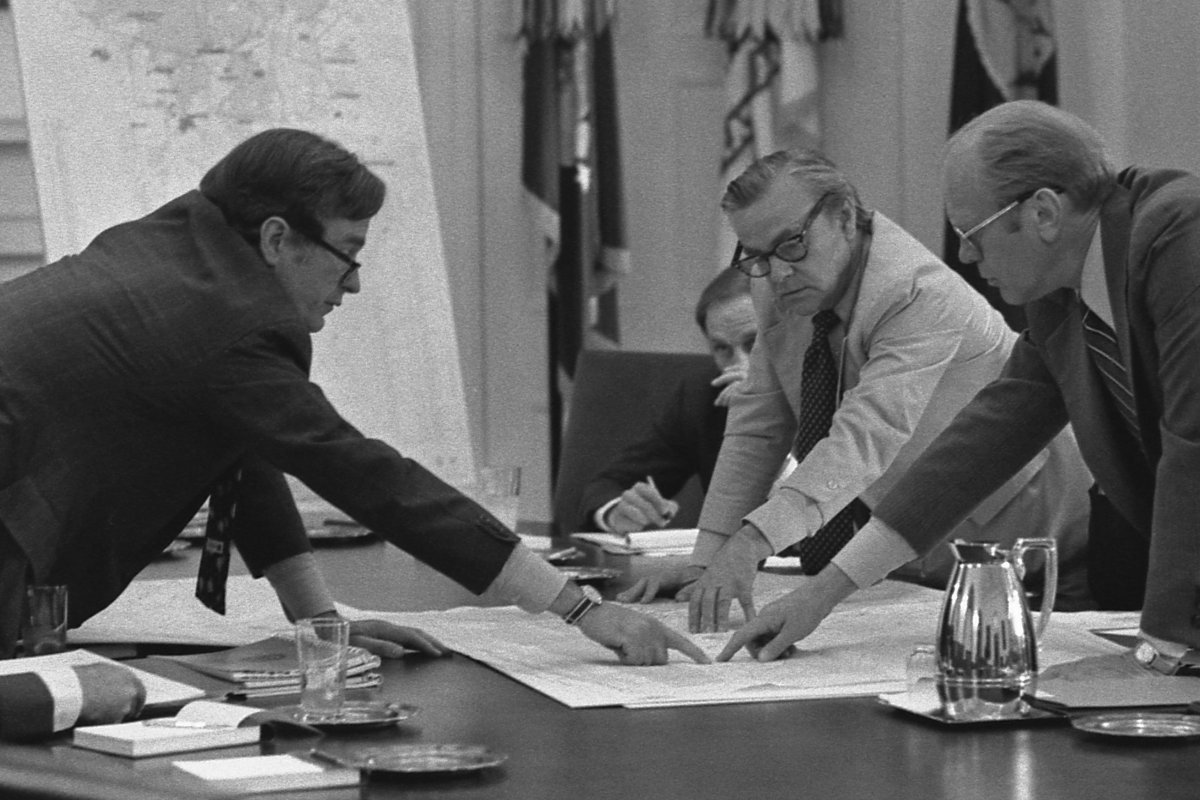
Islamo-Leftism?
The Cold War origins of anti-Islamic rhetoric
Last weekend, there was a troubling pronouncement from the French Minister of Higher Education, Research, and Innovation, Dr. Frédérique Vidal: “I think that Islamo-leftism is eating away at our society as a whole, and universities are not immune and are part of our society.” She announced a formal investigation into the “gangrenous” influence of “Islamo-leftism” in the academy.
Vidal’s remarks may have been part of an effort by President Emmanuel Macron to win over right-wing voters from rival candidate Marine Le Pen, who has used the phrase “Islamo-leftism” to conjure images of a looming spectre threatening France.
The backlash to Vidal’s statements has been swift. Critics pointed out that the concept of “Islamo-leftism” is not even a real ideology, but a bogeyman of French right-wing talk media. No one can pin down exactly what it means, but commentators agree the term “Islamo-leftism” is an attempt by reactionary pundits to associate leftist academics with violent Islamist movements through connections that are tenuous at best and fictive at worst.
Though the term “Islamo-leftism” is new to most American ears (even those ears that have tuned in to Rush Limbaugh and Ben Shapiro), the association between leftist politics and Islam has been a major element of the political imagination of an influential group of Republican elites since at least the 1990s. Looking briefly at this history, we can see how people often interpret one perceived enemy through lenses crafted to make sense of another enemy. As many Americans’ perspectives shifted in the 1990s from seeing communism as the United States’ main antagonist to seeing militant Islamism (and often, by extension, Islam) as the United States’ main antagonist, some people interpreted have Islam on analogy with communism, refusing to acknowledge evidence to the contrary.
“Islam is not a religion—it is a totalitarian way of life.” So said Lt. Gen. Jerry Boykin, former undersecretary of defense for intelligence, and he’s not alone. Congressman Jody Hice said of Islam, “Most people think Islam is a religion, it’s not,” adding, “It is a complete geo-political structure and as such, does not deserve First Amendment protection.” Michael Flynn, former National Security Advisor for President Trump, expressed the same view, saying “Islam is a political ideology” that “hides behind being a religion.” Similar claims have been made by Pat Robertson, Ben Carson, Jeff Sessions, and advisors to the 2016 Cruz campaign and the Trump administration.
When these authors describe Islam as a “political ideology,” the implied comparison is to global communism of the Cold War era. To these commentators, Islam has its more innocuous and its more rigorous interpretations, the latter of which, much like Soviet-style communism, is a totalitarian political vision that is fundamentally at odds with the American way of life. On this interpretation, it is the ideology itself that is dangerous and disqualifying, not merely the violent actions some extremists take to promote that ideology.
Paradigmatic is the work of Andrew McCarthy, conservative columnist and one of the legal architects of Executive Order 13769, called the “Travel Ban” or “Muslim Ban.” In his bestselling book The Grand Jihad: How Islam and the Left Sabotage America, McCarthy draws heavily on the parallel between Islamism and Communism. The legal precedent he cites for the executive order is Section 1182(a)(3)(D) of federal immigration law, which states, “Any immigrant who is or has been a member of or affiliated with the Communist or any other totalitarian party (or subdivision or affiliate thereof), domestic or foreign, is inadmissible.” For McCarthy, the viewpoint he calls “sharia supremacism” counts as one such totalitarian party, and to ascertain which groups count as “affiliates” requires close scrutiny of Muslims around the world.
In 1976, CIA director George H.W. Bush commissioned an investigation into the Soviet threat to America. The investigation was carried out by a team of professors, former intelligence professionals, and military leaders, collectively known as “Team B.” Team B concluded that the Soviet threat was much higher than estimated and that aggressive actions were needed to curb communist expansion and prevent Soviet overthrow of the United States. Though later evaluations found that most of their conclusions were exaggerated and alarmist even by Cold War standards, Team B’s analysis laid the foundation for Reagan-era arms expansion and fueled the notion that the USA and the USSR could not co-exist in détente. In 2010, Andrew McCarthy was part of a group of professors, former intelligence professionals, and military leaders assembled by an independent thinktank to evaluate the threat of Islamism to America. The document they produced, titled Shariah: The Threat to America, contends that sharia supremacism is an ideology that cannot coexist with American democracy. This group called themselves “Team B2.”
President Trump has cited Team B2 members as authorities on Islam on dozens of occasions, so it is no exaggeration to say that the “Islam-is-the-new-Communism” idea has been influencing American policy at the highest level. As legal scholar Asma Uddin writes in her book When Islam Is Not a Religion, “Current anti-Muslim politics, supported by the top echelons of American political power, are emboldening voices that were once relegated to the peripheries.” She adds, “The false idea that ‘Islam is not a religion’ is gaining ground.”
Both in France and in the U.S., the largely imagined connections between left-wing politics and Islam illustrate a psychological pattern. Human beings are, in general, bad at distinguishing between different perceived enemies. We tend to lump those we hate into one massive “them.” Psychologists refer to this phenomenon as “outgroup homogeneity.” Hence, Islamophobia not only draws on existing racial prejudices, but also existing political divisions like those between the right and the left.
At its worst, language about Islamo-leftism or Islam as a political ideology can paint religious prejudice with the veneer of political disagreement, legitimizing anti-Muslim laws like the Travel Ban by making them seem to be about political ideology, national security, or laïcité. If we are not careful with our categories, the idea of religious freedom may end up being entirely evacuated of meaning.
Photo: CIA director George H.W. Bush advising President Gerald Ford in 1976 (via National Archive)
Sightings is edited by Daniel Owings, a PhD Candidate in Theology at the Divinity School. Sign up here to receive Sightings via email. You can also follow us on Facebook and Twitter. The views and opinions expressed in this article are those of the author and do not necessarily reflect the position of the Marty Center or its editor.


